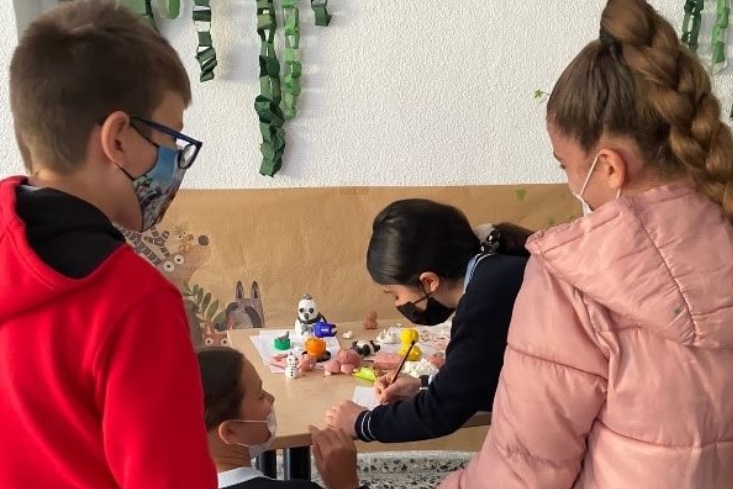Spain
Municipality of Puente Genil
01-01-2015
2015 - Ongoing
11-08-2023
 16th.
16th.
System of citizen participation for children and young people through a Children's Agora and the Local Youth Roundtable.
Population between 10 and 30 years old.

Puente Genil is located in the south-eastern corner of the Spanish province of Cordoba, in the geographical centre of Andalusia, bordering the provinces of Seville and Malaga, and next to the river Genil which gives it its name. It has a population of 31,473 inhabitants and a surface area of 169.5 km², which represents 1.35% of the provincial total. Its population density is 173.46 inhabitants/km². Geographically, it is located in the Comarca Campiña Sur.
In 2022 there were 30,958 people registered in the municipality of Puente Genil, of which 15,376 were men and 15,582 women. In recent years there has been a demographic decline in the locality, although it is not too worrying. As for children and adolescents registered in Puente Genil (under 18 years of age), there were a total of 5,591, of whom 2,817 are boys and 2,780 are girls.
Puente Genil has been the scene of numerous initiatives of innovation in participatory democracy from the local administration, committed to the presence of citizens in the decision-making process of the municipalities. It is worth noting that the municipality was a national and international benchmark with the implementation of participatory budgets in 2001, one of the first in Europe.
Since 2007, the municipality has been incorporating young people into participatory structures with the creation of the Local Youth Board. In 2015, the age range for participation in the municipal agenda was extended to groups aged 10 to 12 with the implementation of the Children's Agora programme. The network of youth correspondents has also been boosted through the Local Youth Board and, this same year, the Children's Council has been created.
Building Citizenship from Childhood to Youth is a system of citizen participation in participatory processes and spaces for children and young people that builds citizenship from 10 to 30 years of age. The system is based on the following components in order of age:
|
Ages |
Process / organ |
Characteristics |
Participants |
|
10 – 12 |
Children's Agora |
Deliberative and decision-making groups of quasi-random composition |
2 groups of 25 each year |
|
10 – 14 |
Children's Council |
Representative body for children and adolescents. |
1 group of 25 for 2 years |
|
12 – 18 |
Youth Correspondents |
Network of youth volunteering that is articulated with the Local Youth Bureau |
80 young people |
|
14 – 30 |
Local Youth Board |
Open youth assembly with decision-making capacity and its own budget allocation. |
Monthly assemblies with 30-100 young people |
In Puente Genil, the aim is to facilitate participation throughout the life cycle, starting from childhood and continuing through the adolescent and youth stages, to finally converge as adults with the rich fabric of local associations. The different processes use different methodological designs, complementary and adapted to each evolutionary stage.
Children's Agora is a methodology designed by Coglobal and inspired by mini-publics. School groups approach a political decision in 5 phases: information, dialogue with the City Council, diagnosis, deliberation and decision. Each year it rotates from school to school. The Children's Council follows the CAI model. Its members are defined by voluntary presentation and, if necessary, by drawing lots.
More information:
Every year some 250 children and young people from Puente Genil are involved in citizen participation bodies and processes. The aim of this mobilisation is to create a system of participatory processes and spaces for children and young people that builds citizenship throughout the maturity cycle, from 10 to 30 years of age. In this way, it proposes:
This innovative system of citizen participation for children and young people is based on the recognition of the diversity of the younger population, which is usually treated in a homogenised and simplified way in the practices of citizen participation. Both the Children's Agora and the Local Youth Committee have a binding mandate in their respective fields of action. The Local Youth Board has been innovative in its capacity to generate and energise the youth fabric (30 associations) and to enable its members to obtain funds complementary to those of the City Council. Children's Agora innovates in the inclusion of profiles less likely to participate in the groups, through the intersectional approach and play-pedagogy.
The Children and Youth Participation System has increased the capacities and empowerment of young people in the municipality, as well as having a clear impact on the local agenda. The system has strengthened the associative fabric and has trained political cadres in the municipality.